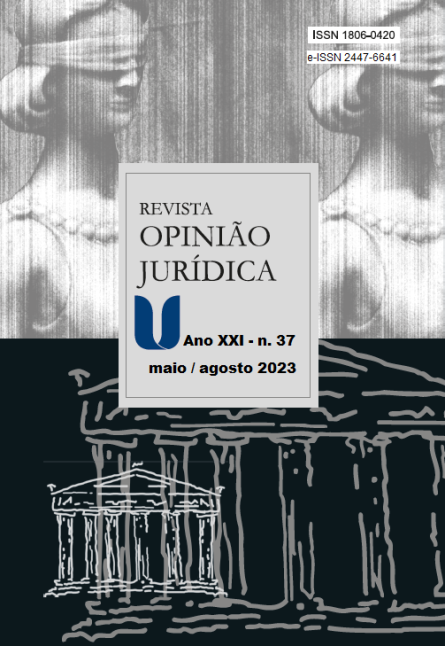THE CROSSROADS OF NANOFOODS IN BRAZIL: BETWEEN THE NECESSITY OF POLITICAL ARTICULATION AND THE DIFFICULTIES IN COORDINATING ACTIONS FOR THE SECTOR
DOI:
https://doi.org/10.12662/2447-6641oj.v21i37.p113-149.2023Keywords:
nano-foods, food security, Anvisa, nanotechnology, risk, the state and access to developmentAbstract
Objective: The objective of the article is to address the issue of the need for a political articulation in nanofood in Brazil, to indicate the safe paths in the commercialization of products with nanotechnology. Especially given the potential risks to the ingestion of substances at the nanoscale.
Methodology: It is important to clarify that there is no specific regulation for nanotechnology in Brazil and that nanofoods are commercialized in the consumer market. For that reason, the method used is the hypothetical-deductive method, based on bibliographic research and the collection of information from the competent bodies, based on the Lei de Acesso à Informação.
Results: Future coordination of actions involves the joining of efforts of some public organizations linked to food security, as well as the private initiative responsible for the industrialization of these products. Thus, the Sistema Nacional de Segurança Alimentar e Nutricional (Sisan) is responsible for formulating public policies aimed at the sector, through the coordination of inter-ministerial actions and community participation by the responsible councils and bodies. On the other hand, Anvisa is responsible for the technical analysis of the risks and the regulation of this novel food, in dialogue with the private sector.
Contributions: Scientific studies indicate that at the nanolevel, the toxicity of substances can be differentiated and harmful to the health of living beings and the environment. Thus, this research identifies who are the agents responsible for the regulation and formulation of public policies for nanofoods in the Brazilian scenario. Such an approach also contributes to clarifying the risks of nanofoods and to the safe and sustainable development of this innovative technology.
Published
How to Cite
Issue
Section
License
CESSION OF COPYRIGHTS
The submission of articles to analysis for publication on Opinião Jurídica implies the author(s) transfers copyrights to Centro Universitário Christus – UNICHRISTUS for reproduction, publicizing, distribution, printing and publication, according to the Publication Norm 414R, Opin. Jur., Fortaleza, year 12, n. 16, p.1-414, Jan./Dec. 2014, costs to be bore by UNICHRISTUS, in whatever format or means that may or shall exist, in accordance to articles 49 and following of Federal Law 9.610/98.
1. In ceding copyrights, the author(s) agrees to do so in exclusivity, free of charge and for the totality of the work.
2. UNICHRISTUS may make the work, in its entirety or in parts, available for scholarly purposes, without altering its contents, except for small corrections that are deemed necessary.
3. The cession of copyrights is valid in all countries and for versions of the material in its original language or translated into a foreign language.
RESPONSIBILITY FOR THE CONTENT
By submitting an article, the author(s) declare to have sole responsibility for the content of the piece and is(are), therefore, responsible for any judicial or extrajudicial measures referring to it.
1. In case of joint authorship, all authors are considered collectively responsible, except when proved otherwise.


















